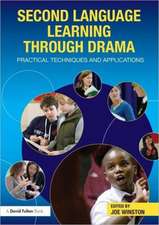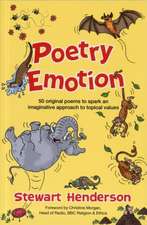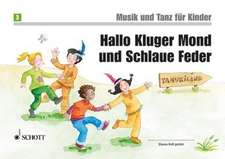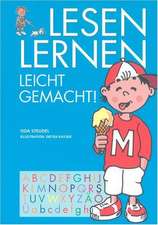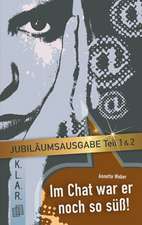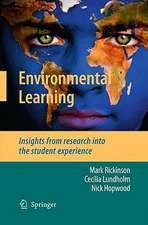Zoo Talk
Autor Patricia G. Patrick, Sue Dale Tunnicliffeen Limba Engleză Paperback – 15 oct 2014
Their analysis of the ‘visitor voice’ informs creative suggestions for how to enhance the educational experiences of young patrons. By assessing visitors’ entry knowledge and their interpretations of the exhibits, the authors establish a baseline for zoos that helps them to refine their communication with visitors, for example in expanding knowledge of issues concerning biodiversity and biological conservation. The book includes practical advice for zoo and classroom educators about positive ways to prepare for zoo visits, engaging activities during visits, and follow-up work that maximizes the pedagogical benefits. It also reflects on the interplay between the developing role of zoos as facilitators of learning, and the ways in which zoos help visitors assimilate the knowledge on offer. In addition to being essential reading for educators in zoos and in the classroom, this volume is full of insights with much broader contextual relevance for getting the most out of museum visits and field trips in general.
| Toate formatele și edițiile | Preț | Express |
|---|---|---|
| Paperback (1) | 636.80 lei 6-8 săpt. | |
| SPRINGER NETHERLANDS – 15 oct 2014 | 636.80 lei 6-8 săpt. | |
| Hardback (1) | 642.51 lei 6-8 săpt. | |
| SPRINGER NETHERLANDS – 29 sep 2012 | 642.51 lei 6-8 săpt. |
Preț: 636.80 lei
Preț vechi: 749.19 lei
-15% Nou
Puncte Express: 955
Preț estimativ în valută:
121.87€ • 132.33$ • 102.37£
121.87€ • 132.33$ • 102.37£
Carte tipărită la comandă
Livrare economică 22 aprilie-06 mai
Preluare comenzi: 021 569.72.76
Specificații
ISBN-13: 9789400799097
ISBN-10: 9400799098
Pagini: 224
Ilustrații: VIII, 216 p.
Dimensiuni: 155 x 235 x 12 mm
Greutate: 0.32 kg
Ediția:2013
Editura: SPRINGER NETHERLANDS
Colecția Springer
Locul publicării:Dordrecht, Netherlands
ISBN-10: 9400799098
Pagini: 224
Ilustrații: VIII, 216 p.
Dimensiuni: 155 x 235 x 12 mm
Greutate: 0.32 kg
Ediția:2013
Editura: SPRINGER NETHERLANDS
Colecția Springer
Locul publicării:Dordrecht, Netherlands
Public țintă
ResearchCuprins
Introduction.- Chapter 1 A History of Animal Collections.- Chapter 2 Rational for the Existence of Zoos.- Chapter 3 Visitors Knowledge of Zoos.- Chapter 4 Exhibit Design.- Chapter 5 Talking About Animals.- Chapter 6 Visitor Voice.- Chapter 7 School and Family Groups’ Conversations.- Chapter 8 The Zoo Voice: Zoo Education and Learning.- Chapter 9 Information Educators Need to Know About Zoo Field Trips (Useful Field Trip Information).- Chapter 10 Zoo Field Trip Design.- Conclusions.
Recenzii
From the book reviews:
“The book Zoo Talk, authored by Patricia G. Patrick and Sue Dale Tunnicliffe, provides a new look at informal education, suggests activities for educators to employ and identifies potential learning opportunities in zoos and aquariums. … The book Zoo Talk is essential reading for all educators in zoos and aquariums.” (WAZA News, Issue 4, 2014)
“The book Zoo Talk, authored by Patricia G. Patrick and Sue Dale Tunnicliffe, provides a new look at informal education, suggests activities for educators to employ and identifies potential learning opportunities in zoos and aquariums. … The book Zoo Talk is essential reading for all educators in zoos and aquariums.” (WAZA News, Issue 4, 2014)
Textul de pe ultima copertă
Founded on the premise that zoos are ‘bilingual’—that the zoo, in the shape of its staff and exhibits, and its visitors speak distinct languages—this enlightening analysis of the informal learning that occurs in zoos examines the ‘speech’ of exhibits and staff as well as the discourse of visitors beginning in the earliest years. Using real-life conversations among visitors as a basis for discussion, the authors interrogate children’s responses to the exhibits and by doing so develop an ‘informal learning model’ and a ‘zoo knowledge model’ that prompts suggestions for activities that classroom educators can use before, during, and after a zoo visit.
Their analysis of the ‘visitor voice’ informs creative suggestions for how to enhance the educational experiences of young patrons. By assessing visitors’ entry knowledge and their interpretations of the exhibits, the authors establish a baseline for zoos that helps them to refine their communication with visitors, for example in expanding knowledge of issues concerning biodiversity and biological conservation. The book includes practical advice for zoo and classroom educators about positive ways to prepare for zoo visits, engaging activities during visits, and follow-up work that maximizes the pedagogical benefits. It also reflects on the interplay between the developing role of zoos as facilitators of learning, and the ways in which zoos help visitors assimilate the knowledge on offer. In addition to being essential reading for educators in zoos and in the classroom, this volume is full of insights with much broader contextual relevance for getting the most out of museum visits and field trips in general.
Their analysis of the ‘visitor voice’ informs creative suggestions for how to enhance the educational experiences of young patrons. By assessing visitors’ entry knowledge and their interpretations of the exhibits, the authors establish a baseline for zoos that helps them to refine their communication with visitors, for example in expanding knowledge of issues concerning biodiversity and biological conservation. The book includes practical advice for zoo and classroom educators about positive ways to prepare for zoo visits, engaging activities during visits, and follow-up work that maximizes the pedagogical benefits. It also reflects on the interplay between the developing role of zoos as facilitators of learning, and the ways in which zoos help visitors assimilate the knowledge on offer. In addition to being essential reading for educators in zoos and in the classroom, this volume is full of insights with much broader contextual relevance for getting the most out of museum visits and field trips in general.
Caracteristici
Provides a new look at informal education and education in zoos through the development of an Informal Learning Model and a Zoo Knowledge Model Suggests activities for classroom educators to employ before, during, and after a zoo visit First book focusing on how children learn about animals and children’s discourse when viewing animals Offers a visual explanation of students’ knowledge of zoos Identifies potential learning opportunities such as narratives, inquiry science, and cross-curricular activities


